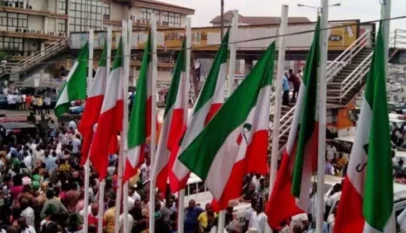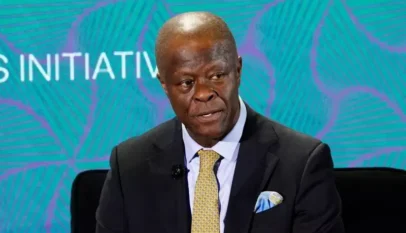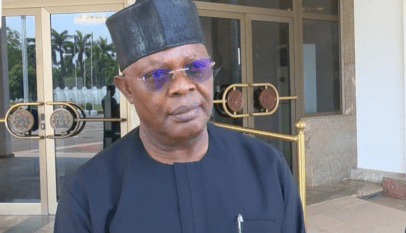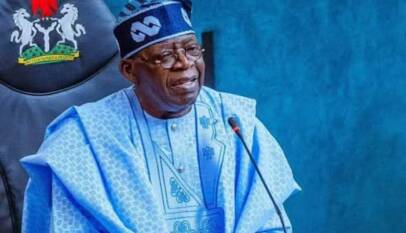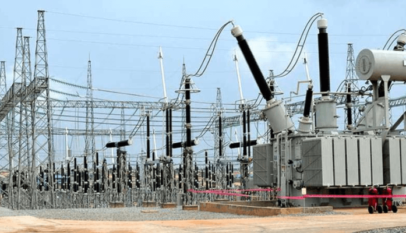
By Sadeeq Kamsela, Abuja
A high-level delegation of leaders from the South-South geopolitical zone of Nigeria, under the auspices of Pan-Niger Delta Forum, met with President Bola Ahmed Tinubu at the State House in Abuja on Tuesday.
The delegation, led by the Pan Niger Delta Forum (PANDEF), expressed gratitude to the President for granting them an audience, acknowledging the importance of the meeting and highlighting the region’s ongoing mourning over the recent loss of their esteemed leader, Chief (Dr.) Edwin Clark.
The PANDEF team, led by the Board of Trustees and Amanyanaboof Twon-Brass, King Alfred Diete-Spiff, and former Governor of Akwa Ibom State, Obong Victor Attah, recognized the significant roles played by the President’s wife, First Lady Senator Oluremi Tinubu, and Senate President Senator Godswill Akpabio, as well as the inclusion of key Niger Delta figures in the President’s cabinet.
They particularly commended the President’s efforts in appointing a substantive Board for the Niger Delta Development Commission (NDDC) and supporting the Presidential Amnesty Programme (PAP).
The delegation expressed deep concern over the ongoing political crisis in Rivers State, which has escalated despite President Tinubu’s mediation efforts. Leaders called for immediate intervention, urging all stakeholders to prioritize peace to avoid a further destabilizing impact on the region and the nation.
They also called for a resolution outside of the court system to address the tensions. In this context, the leaders emphasized, “An amicable resolution must be sought outside the courts, ensuring that no party is considered superior to the other and that a win-win outcome is achieved.”
On the issue of governance and regional development, the leaders voiced their concern over the delay in the passage of the South-South Development Commission Bill. They urged President Tinubu to give assent to the Bill, which was duly passed by the National Assembly, stating,
“The establishment of the South-South Development Commission will address the holistic development needs of our region, distinct from the scope of the NDDC,” while noting that the NDDC primarily focuses on the oil and gas industry and its challenges, while the new commission would target broader social and infrastructural development within the region.
The delegation also called for a revisit of the 2002 International Court of Justice (ICJ) ruling and the subsequent Green Tree Agreement that led to the loss of the Bakassi Peninsula to Cameroon. The leaders expressed concern about the lasting impact on affected communities and the need for the government to mitigate the ongoing consequences of the decision.
The people of Bakassi continue to suffer the consequences of this loss, and it is imperative for the government to revisit this matter for the sake of justice and restitution,” they remarked.
In light of growing insecurity, including kidnappings, violent attacks, and piracy, the South-South leaders urged stronger security measures to safeguard the region. They particularly called for the establishment of the proposed Coast Guard, drawing personnel from littoral states to combat maritime insecurity.
“We cannot afford to let insecurity spread unchecked; enhanced security measures are crucial to maintaining peace in our communities,” the delegation stated.
The delegation highlighted the dire need for infrastructural development in the South-South, pointing out the underfunding of key projects in the region. “The deplorable state of our road networks and the dysfunction of our seaports are holding back the economic potential of the South-South. We urge the federal government to prioritize critical infrastructure investments in our region.”
They also proposed the development of modular refineries to tackle illegal refining and environmental degradation. “We stand ready to work with the government to tackle illegal refining and create economic opportunities for our people through the development of modular refineries,” they declared. They further called for greater representation from the region in top management positions within the oil and gas industry.
On the Niger Delta’s environment, which has suffered extensive damage from oil exploration activities, PANDEF called for a phased remediation program, building on the ongoing Ogoni cleanup, to address the broader environmental challenges facing the region.
“The environmental devastation caused by decades of oil exploration remains a pressing issue for our people. We call for urgent and comprehensive efforts to restore our land and water,” they said.
A major point of discussion was the call for a return to fiscal federalism, with the leaders advocating for reforms to Nigeria’s fiscal system to promote more equitable development across the country. “Fiscal federalism is critical to the future of Nigeria. It is the key to achieving a more just and prosperous nation,” the delegation asserted.
In closing, the South-South leaders reaffirmed their support for President Tinubu’s Renewed Hope Agenda, pledging full cooperation in advancing the nation’s development. They expressed optimism that this meeting marked the beginning of a new chapter in the relationship between the Niger Delta region and the federal government, one focused on prosperity, stability, and progress for all Nigerians.

